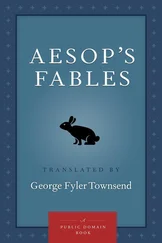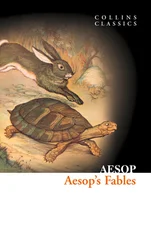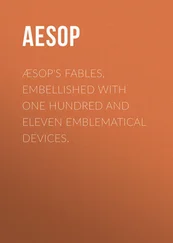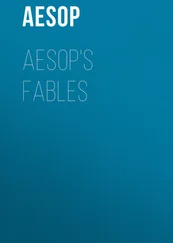Jones Vernon - Aesop's Fables; a new translation
Здесь есть возможность читать онлайн «Jones Vernon - Aesop's Fables; a new translation» — ознакомительный отрывок электронной книги совершенно бесплатно, а после прочтения отрывка купить полную версию. В некоторых случаях можно слушать аудио, скачать через торрент в формате fb2 и присутствует краткое содержание. Издательство: Иностранный паблик, Жанр: foreign_antique, foreign_prose, на английском языке. Описание произведения, (предисловие) а так же отзывы посетителей доступны на портале библиотеки ЛибКат.
- Название:Aesop's Fables; a new translation
- Автор:
- Издательство:Иностранный паблик
- Жанр:
- Год:неизвестен
- ISBN:нет данных
- Рейтинг книги:3 / 5. Голосов: 1
-
Избранное:Добавить в избранное
- Отзывы:
-
Ваша оценка:
- 60
- 1
- 2
- 3
- 4
- 5
Aesop's Fables; a new translation: краткое содержание, описание и аннотация
Предлагаем к чтению аннотацию, описание, краткое содержание или предисловие (зависит от того, что написал сам автор книги «Aesop's Fables; a new translation»). Если вы не нашли необходимую информацию о книге — напишите в комментариях, мы постараемся отыскать её.
Aesop's Fables; a new translation — читать онлайн ознакомительный отрывок
Ниже представлен текст книги, разбитый по страницам. Система сохранения места последней прочитанной страницы, позволяет с удобством читать онлайн бесплатно книгу «Aesop's Fables; a new translation», без необходимости каждый раз заново искать на чём Вы остановились. Поставьте закладку, и сможете в любой момент перейти на страницу, на которой закончили чтение.
Интервал:
Закладка:
THE FIR-TREE AND THE BRAMBLE
A Fir-tree was boasting to a Bramble, and said, somewhat contemptuously, "You poor creature, you are of no use whatever. Now, look at me: I am useful for all sorts of things, particularly when men build houses; they can't do without me then." But the Bramble replied, "Ah, that's all very well: but you wait till they come with axes and saws to cut you down, and then you'll wish you were a Bramble and not a Fir."
Better poverty without a care than wealth with its many obligations.THE FROGS' COMPLAINT AGAINST THE SUN
Once upon a time the Sun was about to take to himself a wife. The Frogs in terror all raised their voices to the skies, and Jupiter, disturbed by the noise, asked them what they were croaking about. They replied, "The Sun is bad enough even while he is single, drying up our marshes with his heat as he does. But what will become of us if he marries and begets other Suns?"
THE DOG, THE COCK, AND THE FOX
A Dog and a Cock became great friends, and agreed to travel together. At nightfall the Cock flew up into the branches of a tree to roost, while the Dog curled himself up inside the trunk, which was hollow. At break of day the Cock woke up and crew, as usual. A Fox heard, and, wishing to make a breakfast of him, came and stood under the tree and begged him to come down. "I should so like," said he, "to make the acquaintance of one who has such a beautiful voice." The Cock replied, "Would you just wake my porter who sleeps at the foot of the tree? He'll open the door and let you in." The Fox accordingly rapped on the trunk, when out rushed the Dog and tore him in pieces.
THE GNAT AND THE BULL
A Gnat alighted on one of the horns of a Bull, and remained sitting there for a considerable time. When it had rested sufficiently and was about to fly away, it said to the Bull, "Do you mind if I go now?" The Bull merely raised his eyes and remarked, without interest, "It's all one to me; I didn't notice when you came, and I shan't know when you go away."
We may often be of more consequence in our own eyes than in the eyes of our neighbours.THE BEAR AND THE TRAVELLERS
Two Travellers were on the road together, when a Bear suddenly appeared on the scene. Before he observed them, one made for a tree at the side of the road, and climbed up into the branches and hid there. The other was not so nimble as his companion; and, as he could not escape, he threw himself on the ground and pretended to be dead. The Bear came up and sniffed all round him, but he kept perfectly still and held his breath: for they say that a bear will not touch a dead body. The Bear took him for a corpse, and went away. When the coast was clear, the Traveller in the tree came down, and asked the other what it was the Bear had whispered to him when he put his mouth to his ear. The other replied, "He told me never again to travel with a friend who deserts you at the first sign of danger."
Misfortune tests the sincerity of friendship.THE SLAVE AND THE LION
A Slave ran away from his master, by whom he had been most cruelly treated, and, in order to avoid capture, betook himself into the desert. As he wandered about in search of food and shelter, he came to a cave, which he entered and found to be unoccupied. Really, however, it was a Lion's den, and almost immediately, to the horror of the wretched fugitive, the Lion himself appeared. The man gave himself up for lost: but, to his utter astonishment, the Lion, instead of springing upon him and devouring him, came and fawned upon him, at the same time whining and lifting up his paw. Observing it to be much swollen and inflamed, he examined it and found a large thorn embedded in the ball of the foot. He accordingly removed it and dressed the wound as well as he could: and in course of time it healed up completely. The Lion's gratitude was unbounded; he looked upon the man as his friend, and they shared the cave for some time together. A day came, however, when the Slave began to long for the society of his fellow-men, and he bade farewell to the Lion and returned to the town. Here he was presently recognised and carried off in chains to his former master, who resolved to make an example of him, and ordered that he should be thrown to the beasts at the next public spectacle in the theatre. On the fatal day the beasts were loosed into the arena, and among the rest a Lion of huge bulk and ferocious aspect; and then the wretched Slave was cast in among them. What was the amazement of the spectators, when the Lion after one glance bounded up to him and lay down at his feet with every expression of affection and delight! It was his old friend of the cave! The audience clamoured that the Slave's life should be spared: and the governor of the town, marvelling at such gratitude and fidelity in a beast, decreed that both should receive their liberty.
THE FLEA AND THE MAN
A Flea bit a Man, and bit him again, and again, till he could stand it no longer, but made a thorough search for it, and at last succeeded in catching it. Holding it between his finger and thumb, he said – or rather shouted, so angry was he – "Who are you, pray, you wretched little creature, that you make so free with my person?" The Flea, terrified, whimpered in a weak little voice, "Oh, sir! pray let me go; don't kill me! I am such a little thing that I can't do you much harm." But the Man laughed and said, "I am going to kill you now, at once: whatever is bad has got to be destroyed, no matter how slight the harm it does."
Do not waste your pity on a scamp.THE BEE AND JUPITER
A Queen Bee from Hymettus flew up to Olympus with some fresh honey from the hive as a present to Jupiter, who was so pleased with the gift that he promised to give her anything she liked to ask for. She said she would be very grateful if he would give stings to the bees, to kill people who robbed them of their honey. Jupiter was greatly displeased with this request, for he loved mankind: but he had given his word, so he said that stings they should have. The stings he gave them, however, were of such a kind that whenever a bee stings a man the sting is left in the wound and the bee dies.
Evil wishes, like fowls, come home to roost.THE OAK AND THE REEDS
An Oak that grew on the bank of a river was uprooted by a severe gale of wind, and thrown across the stream. It fell among some Reeds growing by the water, and said to them, "How is it that you, who are so frail and slender, have managed to weather the storm, whereas I, with all my strength, have been torn up by the roots and hurled into the river?" "You were stubborn," came the reply, "and fought against the storm, which proved stronger than you: but we bow and yield to every breeze, and thus the gale passed harmlessly over our heads."
THE BLIND MAN AND THE CUB
There was once a Blind Man who had so fine a sense of touch that, when any animal was put into his hands, he could tell what it was merely by the feel of it. One day the Cub of a Wolf was put into his hands, and he was asked what it was. He felt it for some time, and then said, "Indeed, I am not sure whether it is a Wolf's Cub or a Fox's: but this I know – it would never do to trust it in a sheepfold."
Evil tendencies are early shown.THE BOY AND THE SNAILS
A Farmer's Boy went looking for Snails, and, when he had picked up both his hands full, he set about making a fire at which to roast them; for he meant to eat them. When it got well alight and the Snails began to feel the heat, they gradually withdrew more and more into their shells with the hissing noise they always make when they do so. When the Boy heard it, he said, "You abandoned creatures, how can you find heart to whistle when your houses are burning?"
Читать дальшеИнтервал:
Закладка:
Похожие книги на «Aesop's Fables; a new translation»
Представляем Вашему вниманию похожие книги на «Aesop's Fables; a new translation» списком для выбора. Мы отобрали схожую по названию и смыслу литературу в надежде предоставить читателям больше вариантов отыскать новые, интересные, ещё непрочитанные произведения.
Обсуждение, отзывы о книге «Aesop's Fables; a new translation» и просто собственные мнения читателей. Оставьте ваши комментарии, напишите, что Вы думаете о произведении, его смысле или главных героях. Укажите что конкретно понравилось, а что нет, и почему Вы так считаете.
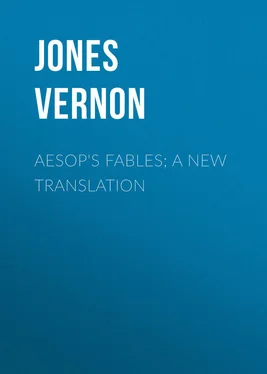
![Михаил Лермонтов - A Hero of Our Time [New Translation]](/books/27671/mihail-lermontov-a-hero-of-our-time-new-translati-thumb.webp)


